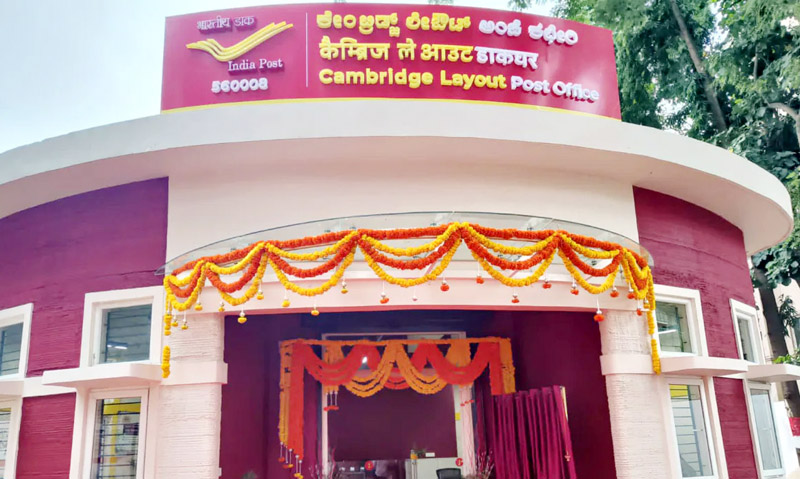
BENGALURU, Aug 18:
India’s first 3D-printed post office built with a robotic printer using 3D printing technology that deposits concrete layer-by-layer in accordance with computerised 3D model drawing input was inaugurated in the city on Friday.
Prime Minister Narendra Modi lauded the effort in a tweet saying that it represents the spirit of a self-reliant India.
In a post on X (formerly Twitter), the Prime Minister said: “Every Indian would be proud to see India’s first 3D printed Post Office at Cambridge Layout, Bengaluru. A testament to our nation’s innovation and progress, it also embodies the spirit of a self-reliant India.”
Officials said the 3D-printed post office with a built-up area of 1,021 square feet involved a process requiring a delicate balance of concrete properties, including flowability, quick hardening for load-bearing capacity and sufficient strength to ensure successful printing.
Inaugurating the brand new post office at the residential Cambridge Layout here, Union Minister Ashwini Vaishnaw, who holds the Railways, Communications, Electronics and IT portfolios, said the building demonstrated “the spirit of development, the spirit of developing our own technology, the spirit of doing something which was considered impossible in the earlier times.”
That is the defining feature of these times, the minister said.
According to postal officials, the post office building was constructed by construction company Larsen & Toubro Limited while IIT Madras provided technical guidance.
The entire construction activity was completed in a period of 45 days as compared to about six to eight months taken by the conventional method.
Cost and time savings make 3D-concrete printing technology a viable alternative to conventional building practices, the officials said.
The office will be functional following the inauguration, a Department of Posts official added. “Having a 3D-printed concrete building constructed on site is a great initiative. This is a technology demonstrator. IIT Madras has done fabulous work on this. When this technology will become mainstream, we will see more such initiatives taking this technology forward,” Vaishnaw told reporters. (PTI)

